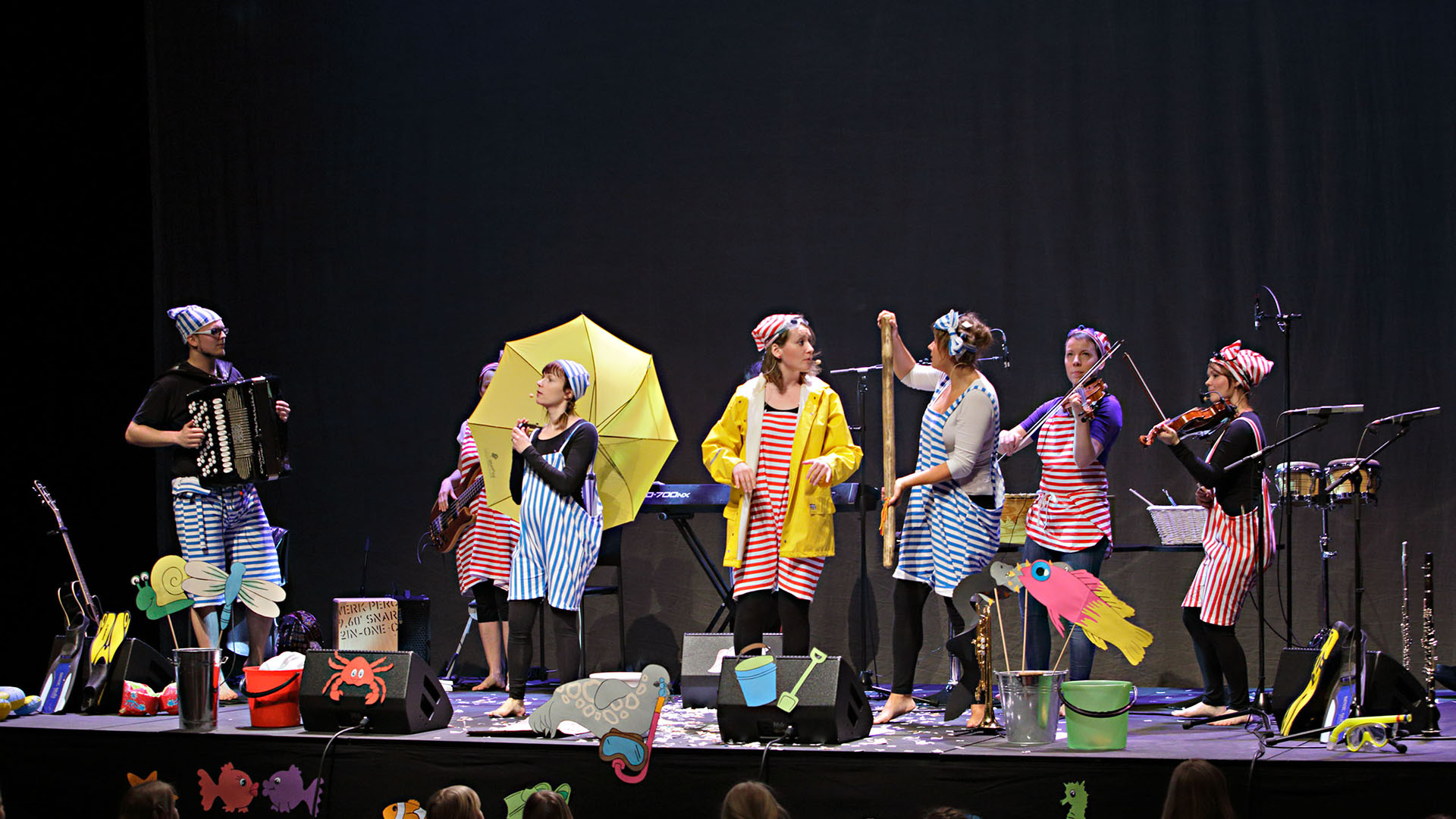Music education, bachelor and master
Study to become a professional and innovative music teacher, musician or researcher under the guidance of our excellent teachers.

Why study here?
We give you the chance to become a multi-talent in music education. You will learn to master different musical styles on several instruments, lead choirs and bands, and arrange material for various kinds of ensembles. You will utilise research results to develop your teaching as well as your evaluation and development work. We help you to build networks with potential employers already during your studies.
About the studies
Most music education graduates find work as music teachers in comprehensive and upper secondary schools. We give you a well-rounded basis to also take on other kinds of assignments that require music education expertise or to pursue doctoral studies. The degree requirements include studies in music and research and pedagogical studies for teachers (60 credits).
This programme is only available in Finnish and Swedish.
Bachelor’s studies
During your first three years as a music education student, you will study music, pedagogy and research skills. Your studies will also include elective courses and possibly studies in minor subjects, e.g. music technology or the pedagogy of free accompaniment. You can also choose courses organised by the other two Uniarts Helsinki academies and complete so-called joint studies that are available to all students.
Master’s studies
In your master’s degree studies, you will continue studying music subjects, teachers’ pedagogy and research techniques. The degree requirements also include elective studies, which constitute at least a fifth of your master-level studies.
During your studies, you will take part in various music projects as a musician, bandleader, music composer and arranger. You will gain experience by teaching in schools and other educational institutions and via other cultural collaborations. Three on-the-job training periods in schools are included in the curriculum.
Teachers
Our teachers are some of the best experts in their respective fields. In addition to the permanent teaching staff, the programme welcomes top international professionals as guests on a regular basis.
Professors
-
Marja-Leena Juntunen
- Professor, research studies, Music education, Sibelius Academy
- +358407104292
- marja-leena.juntunen@uniarts.fi
-
Heidi Partti
- Professor, research studies, Music education, Sibelius Academy
- +358400941699
- heidi.partti@uniarts.fi
-
Heidi Westerlund
- Professor, music education, doctoral education, MuTri Doctoral School, Sibelius Academy
- +358505015622
- heidi.westerlund@uniarts.fi
Doctoral studies
You can complete a licentiate and a doctoral degree at Uniarts Helsinki as a third-cycle degree. After graduating with a master’s degree, you can apply for doctoral studies in music and specialise in research-oriented, artistic or applied doctoral studies.
Admissions guide
Application instructions for this programme haven't been published yet.
Target degree and length of study
Master of Music (MMus)
5,5 years
Application period
Next possible time to apply is in January 2026. Studies begin in August 2026.
Application languages
Finnish, Swedish
Read more about the language skill requirements
Tuition fee
There is no tuition fee for this degree programme, as the language of instruction is not English.
Supervising teacher
-
Minna Muukkonen
Lecturer, subject didactics, research studies, Music education, Sibelius Academy+358505923473minna.muukkonen@uniarts.fi
Unit
Sibelius Academy
Ask about applying
Why study here?
We give you the chance to become a multi-talent in music education. You will learn to master different musical styles on several instruments, lead choirs and bands, and arrange material for various kinds of ensembles. You will utilise research results to develop your teaching as well as your evaluation and development work. We help you to build networks with potential employers already during your studies.
About the studies
Most music education graduates find work as music teachers in comprehensive and upper secondary schools. We give you a well-rounded basis to also take on other kinds of assignments that require music education expertise or to pursue doctoral studies. The degree requirements include studies in music and research and pedagogical studies for teachers (60 credits).
This programme is only available in Finnish and Swedish.
Bachelor’s studies
During your first three years as a music education student, you will study music, pedagogy and research skills. Your studies will also include elective courses and possibly studies in minor subjects, e.g. music technology or the pedagogy of free accompaniment. You can also choose courses organised by the other two Uniarts Helsinki academies and complete so-called joint studies that are available to all students.
Master’s studies
In your master’s degree studies, you will continue studying music subjects, teachers’ pedagogy and research techniques. The degree requirements also include elective studies, which constitute at least a fifth of your master-level studies.
During your studies, you will take part in various music projects as a musician, bandleader, music composer and arranger. You will gain experience by teaching in schools and other educational institutions and via other cultural collaborations. Three on-the-job training periods in schools are included in the curriculum.
Teachers
Our teachers are some of the best experts in their respective fields. In addition to the permanent teaching staff, the programme welcomes top international professionals as guests on a regular basis.
Professors
-
Marja-Leena Juntunen
- Professor, research studies, Music education, Sibelius Academy
- +358407104292
- marja-leena.juntunen@uniarts.fi
-
Heidi Partti
- Professor, research studies, Music education, Sibelius Academy
- +358400941699
- heidi.partti@uniarts.fi
-
Heidi Westerlund
- Professor, music education, doctoral education, MuTri Doctoral School, Sibelius Academy
- +358505015622
- heidi.westerlund@uniarts.fi
Doctoral studies
You can complete a licentiate and a doctoral degree at Uniarts Helsinki as a third-cycle degree. After graduating with a master’s degree, you can apply for doctoral studies in music and specialise in research-oriented, artistic or applied doctoral studies.